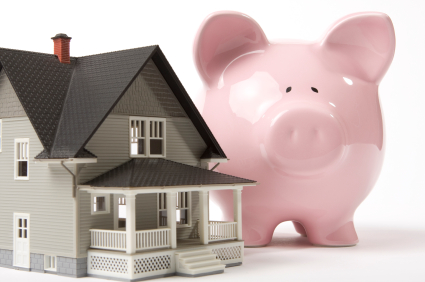
By Chris Banyay, Mortgage Lending Manager, Core Bank
If you’re looking for a way to lower your mortgage payments or get your home loan paid off faster, refinancing may be a good option. Refinancing involves swapping your existing mortgage for a new one with more favorable terms. There are a number of advantages to refinancing, but the process isn’t without certain drawbacks – especially when it comes to the fees involved. Depending on your situation, the costs of refinancing could outweigh the benefits, so you need to know what you can expect.
Generally, when you buy a home you have to pay certain closing costs to complete the sale. When you refinance, you’re essentially replacing your original mortgage loan with a new one which means you have to pay closing costs again. The closing costs for a refinance cover a wide range of fees and can easily total several thousand dollars. Of course, the risk of refinancing is that you might not recoup your closing costs, particularly if you don’t stay in the home for very long after refinancing.
The number one reason that many people refinance is to get a lower interest rate on their mortgage. Some even choose to buy points to lower their rate. This essentially means paying an upfront fee in exchange for a lower monthly rate. A lower rate translates to lower payments, which means you’ll pay less for your home overall. Paying less towards your mortgage each month also frees extra cash in your budget that you can put towards your short- and long-term savings goals.
Refinancing also offers an advantage if you want to clear your mortgage debt in less time. If you’ve got a 30-year loan, refinancing to a 15-year mortgage means you’ll own your home free and clear that much sooner. You’ll also be able to build equity in your home faster if you take this route. The only downside is that you’ll have to shell out more money towards your payments each month which could put a pinch on your wallet if you’re not careful.
Taking out a fixed-rate loan also makes sense if you’ve got an adjustable rate mortgage or you want to consolidate a home equity line of credit (HELOC) into your primary mortgage. Adjustable rate loans can save you money in the short-term but they can be dangerous if your payment suddenly shoots up due to a rate change. When you’re trying to decide whether to refinance, the best thing to do is run the numbers to figure out how much you’ll save and whether it’s worth the fees you’ll have to pay. If the closing costs are a relatively high, it’ll take you longer to recoup the expense in terms of the money you’re saving on a monthly basis.
For example, if you’re paying $4,000 in closing costs and you’re saving $200 a month on your mortgage, it’ll take you 20 months to reach the break-even point. If you’re planning on moving again in the near future, it may not make sense to refinance since there’s no guarantee you’ll recover the costs. On the other hand, if you are planning on staying put, refinancing could potentially put far more back in your wallet than what you what’d you have to pay in fees.
Now is definitely the time to reach out to one of our lenders and see what refinancing could mean for you. Just call 402-885-6900 or you can also get started by applying online at corebank.com/real-estate/apply. We look forward to hearing from you!